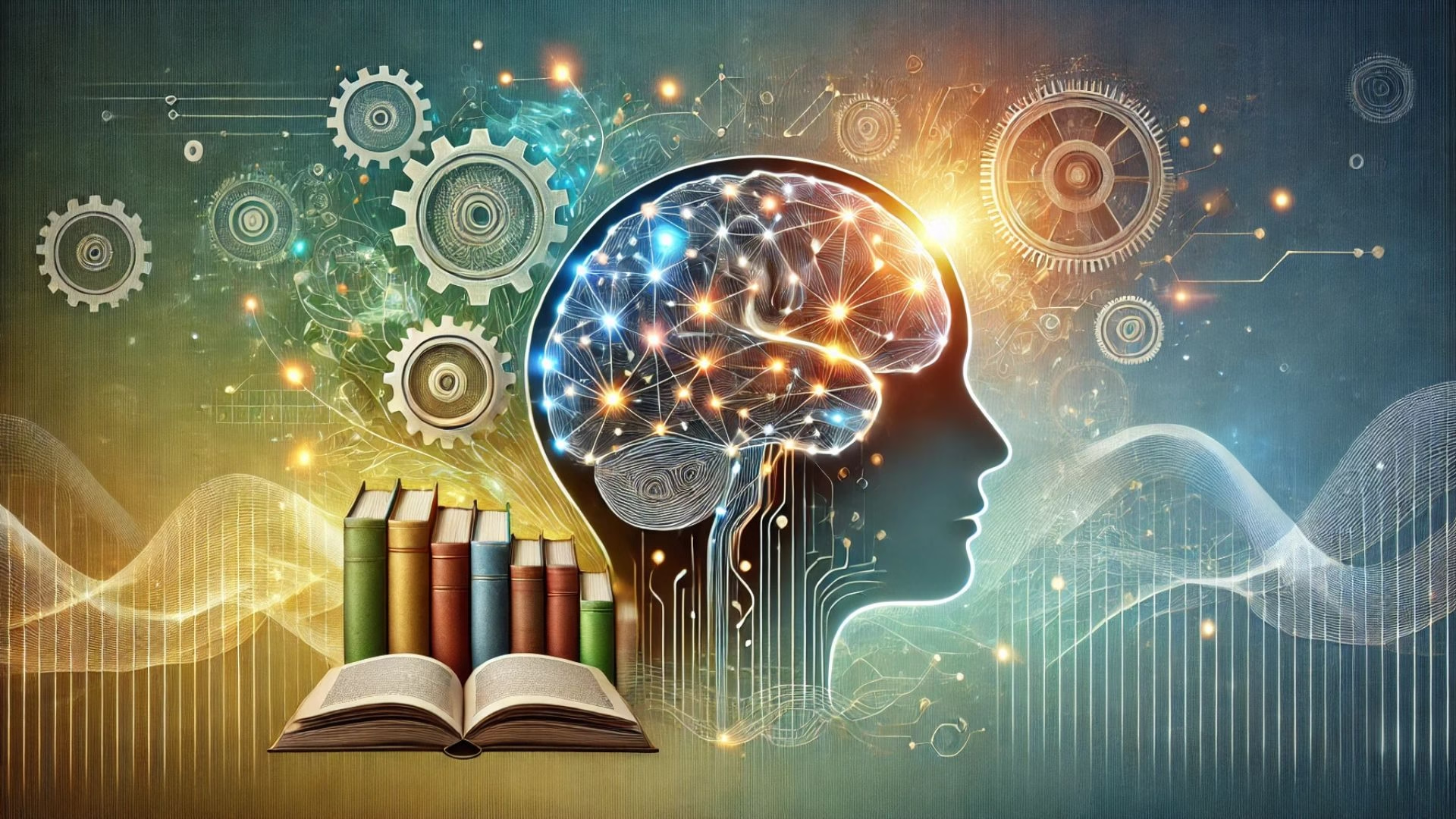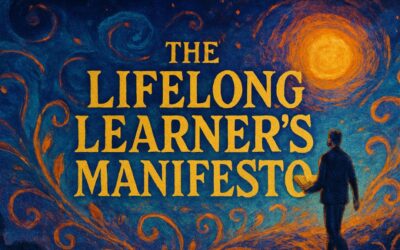Podcast Episode
Understanding how we learn and develop cognitively is essential not only for educators but for anyone looking to grow mentally, whether it’s a child grasping basic math concepts or an adult mastering a new language. The psychology of learning and cognitive development explores how our minds process information, form connections, and adapt to new challenges. By diving into this fascinating subject, we can uncover strategies to enhance our learning capabilities and better understand ourselves and others.
What is Cognitive Development?
Cognitive development refers to how we acquire, process, and store information throughout life. From the moment we are born, our brains begin building pathways that allow us to understand the world. This development doesn’t stop at childhood; it continues into adulthood, albeit at a slower pace.
Psychologist Jean Piaget famously categorized cognitive development into four stages:
- Sensorimotor (0-2 years): Learning through sensory experiences and physical actions.
- Preoperational (2-7 years): Developing language, imagination, and symbolic thinking.
- Concrete Operational (7-11 years): Understanding logic, cause-and-effect, and basic reasoning.
- Formal Operational (12+ years): Thinking abstractly and solving complex problems.
Each stage builds on the last, demonstrating how learning evolves as we grow.
How Do We Learn?
Learning is a complex process influenced by multiple factors, including our environment, emotions, and motivation. Psychologists have identified key mechanisms behind how we absorb knowledge:
- Behavioral Learning
Rooted in the work of B.F. Skinner, behavioral learning focuses on rewards and punishments. For example, a student who gets praise for good grades is likely to repeat the behaviors that led to success. - Cognitive Learning
This theory emphasizes internal processes like memory, attention, and problem-solving. Unlike behavioral learning, it’s not just about rewards—it’s about understanding and making sense of information. - Constructivist Learning
Pioneered by Piaget and Vygotsky, constructivism suggests that learners actively build knowledge based on their experiences. A teacher acts more like a guide, helping students connect new information to what they already know. - Social Learning
Albert Bandura highlighted the importance of observation and imitation. Watching others succeed can inspire learners to follow suit, as seen in mentorship or peer learning environments.
The Role of Memory in Learning
Memory plays a central role in cognitive development. There are three main types of memory that interact during the learning process:
- Sensory Memory: Briefly stores sensory information, such as sights and sounds, for a few seconds.
- Short-Term Memory: Holds information temporarily for processing.
- Long-Term Memory: Stores information permanently for future recall.
Effective learning often involves strategies to transfer knowledge from short-term to long-term memory, such as repetition, visualization, and association techniques.
Factors Influencing Learning and Development
- Emotional State
Emotions significantly impact how we learn. Stress can hinder memory retention, while positive emotions like excitement and curiosity enhance it. - Environment
The learning environment, including physical space, social interactions, and available resources, affects cognitive development. A supportive, stimulating environment fosters better outcomes. - Motivation
Intrinsic motivation, driven by curiosity or a love of learning, is often more effective than extrinsic rewards like grades or trophies. - Age
While children’s brains are more malleable, adults can still learn effectively through consistent practice and active engagement.
Enhancing Learning: Practical Strategies
- Use Active Learning
Engage in discussions, problem-solving activities, or hands-on experiments. Active involvement deepens understanding and retention. - Encourage a Growth Mindset
Promote the belief that intelligence and skills can grow with effort. Carol Dweck’s research shows that a growth mindset leads to resilience and a willingness to tackle challenges. - Incorporate Breaks
Frequent breaks improve focus and prevent burnout, aligning with research on attention spans. - Apply Spaced Repetition
Revisiting material at intervals helps transfer knowledge into long-term memory. Apps and tools like flashcards can assist with this technique. - Leverage Technology
From online courses to educational games, technology provides diverse ways to engage learners of all ages.
The Lifelong Journey of Learning
Cognitive development is not confined to classrooms or childhood. It’s a lifelong process influenced by experiences, challenges, and personal growth. Adults learning a new skill or changing careers often rely on the same principles of cognitive development as children mastering a new subject.
The key is to remain open to learning, embrace curiosity, and understand that mistakes are part of the journey. Whether you’re a student, a professional, or simply someone passionate about self-improvement, the psychology of learning provides valuable insights into unlocking your full potential.
The psychology of learning and cognitive development is a roadmap to understanding how we think, learn, and grow. By applying its principles, we can enhance our educational systems, improve personal learning strategies, and foster environments where everyone has the opportunity to thrive. The human mind is endlessly adaptable, and with the right tools and mindset, the possibilities for growth are limitless.
Let’s Talk
Isn’t it fascinating how our brains never really stop learning? Think about it: every time you pick up a new skill, try a new hobby, or even just remember where you left your keys, your brain is firing up those learning pathways like a well-oiled machine. But here’s a question—have you ever thought about how much emotion plays into learning? It’s one thing to memorize facts for a test, but it’s another to remember the way your favorite teacher made history come alive with stories. That emotional connection? That’s pure cognitive magic.
Let’s dig deeper into this. Emotions, whether positive or negative, have a direct line to our memory. Ever wonder why we remember embarrassing moments so vividly but struggle to recall the specifics of a mundane lecture? It’s because strong emotions, like joy or even embarrassment, act like a spotlight, telling your brain, “Hey, this is important. Store this!” But how do we use this to our advantage? For starters, if you’re learning something new, try to tie it to an experience or emotion—something funny, exciting, or personally meaningful. It’s like giving your brain a little nudge to pay extra attention.
Here’s another angle: the environment you learn in can make or break the process. Ever tried studying in a noisy coffee shop, thinking you’ll look super intellectual, only to realize you’ve spent more time people-watching than reading? On the flip side, complete silence can sometimes feel stifling. The sweet spot is finding a space where your brain feels calm but alert, like a cozy corner with just the right amount of background noise—or maybe even your favorite playlist.
And what about this idea of learning styles? You know, the old “Are you a visual, auditory, or kinesthetic learner?” thing. It’s a nice theory, but research suggests it might not be the whole picture. Turns out, most of us benefit from a mix of methods. So, don’t limit yourself to just one approach. Watch videos, take notes, doodle diagrams, or even teach what you’ve learned to someone else. Teaching is like turbocharging your understanding.
Now, here’s a bit of a challenge to the classic “growth mindset” idea. We all know it’s important to believe you can improve with effort, but have you ever felt like effort isn’t the issue—it’s time? Let’s be real: adults juggling work, family, and a million responsibilities might think, “Sure, I can learn anything, but when?” That’s where micro-learning comes in. You don’t need an hour-long lecture; sometimes, a five-minute video or a quick podcast can plant the seed for a new idea.
So, what’s something you’ve always wanted to learn but felt too intimidated to start? And more importantly, what’s stopping you? Whether it’s fear, time, or just not knowing where to begin, the answer often lies in breaking things down into smaller, more manageable steps. Every expert was once a beginner.
Let’s Learn Vocabulary in Context
Learning about how we learn might seem meta, but it’s packed with useful terms. Take cognitive development, for example. It’s basically a fancy way of saying “how our brain grows and learns over time.” Think about a child learning to stack blocks versus an adult figuring out taxes—it’s all cognitive development, just at different stages.
Then there’s behavioral learning, which is about rewards and consequences. Ever noticed how you’re more likely to do something if there’s a treat involved? Like promising yourself chocolate after finishing a task? Yep, that’s behavioral learning in action.
Intrinsic motivation is another gem. It’s the internal drive that makes you want to learn for the pure joy of it, like picking up guitar because you love music—not because you’re being graded on it. Compare that to extrinsic motivation, which is when you’re doing something for external rewards, like a paycheck or a trophy. Both have their place, but intrinsic motivation tends to create deeper, more lasting learning.
Speaking of rewards, have you tried spaced repetition? It’s a technique where you review information at intervals to make it stick. It’s like revisiting a favorite song so often that the lyrics become second nature.
Ever heard of constructivist learning? It’s all about building new knowledge on top of what you already know. It’s like learning to bake cookies and then using those skills to make a three-layer cake.
Don’t forget growth mindset, which is the belief that you can improve with effort. It’s the inner pep talk that keeps you going when things get tough. And while we’re at it, let’s throw in neuroplasticity—the brain’s ability to rewire itself. Every time you learn something new, your brain is creating and strengthening connections.
Now let’s look at memory retention, which is how well you hold onto what you’ve learned. It’s like storing your notes in a safe versus leaving them on a cluttered desk.
Finally, there’s learning environment, which includes everything from your physical space to the social vibe. If you’ve ever tried studying with a friend who just wanted to chat, you know how critical this can be.
What techniques have you found most helpful in retaining information? And do you think learning is more about discipline or curiosity?
Let’s Discuss & Write
Discussion Questions
- How do emotions, like excitement or stress, affect your ability to learn new things?
- Do you think having a growth mindset is enough, or are there other factors that play a bigger role in learning?
- What role does technology play in your personal learning process? Is it a help or a distraction?
- How do you balance intrinsic and extrinsic motivation in your learning journey?
- What’s the most effective learning environment for you, and why?
Writing Prompt
Write a personal reflection on a time when you successfully learned something new, like a skill or concept, despite initial difficulties. Describe the methods you used, the challenges you faced, and how you felt after mastering it.
Tips: Focus on the emotional journey as well as the practical steps. Use sensory details to make the experience vivid and relatable. Aim for 300–400 words.










0 Comments